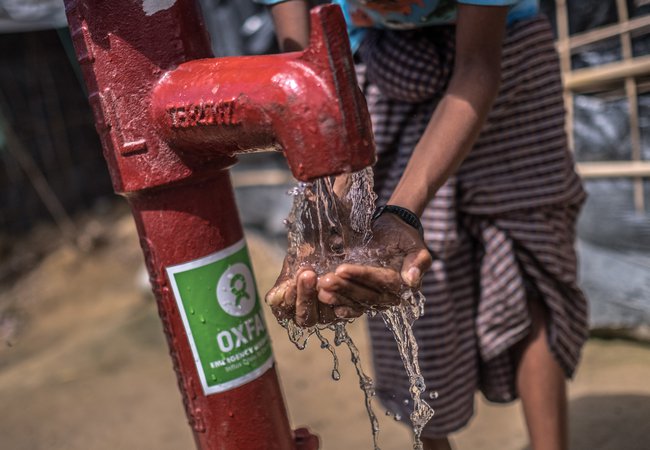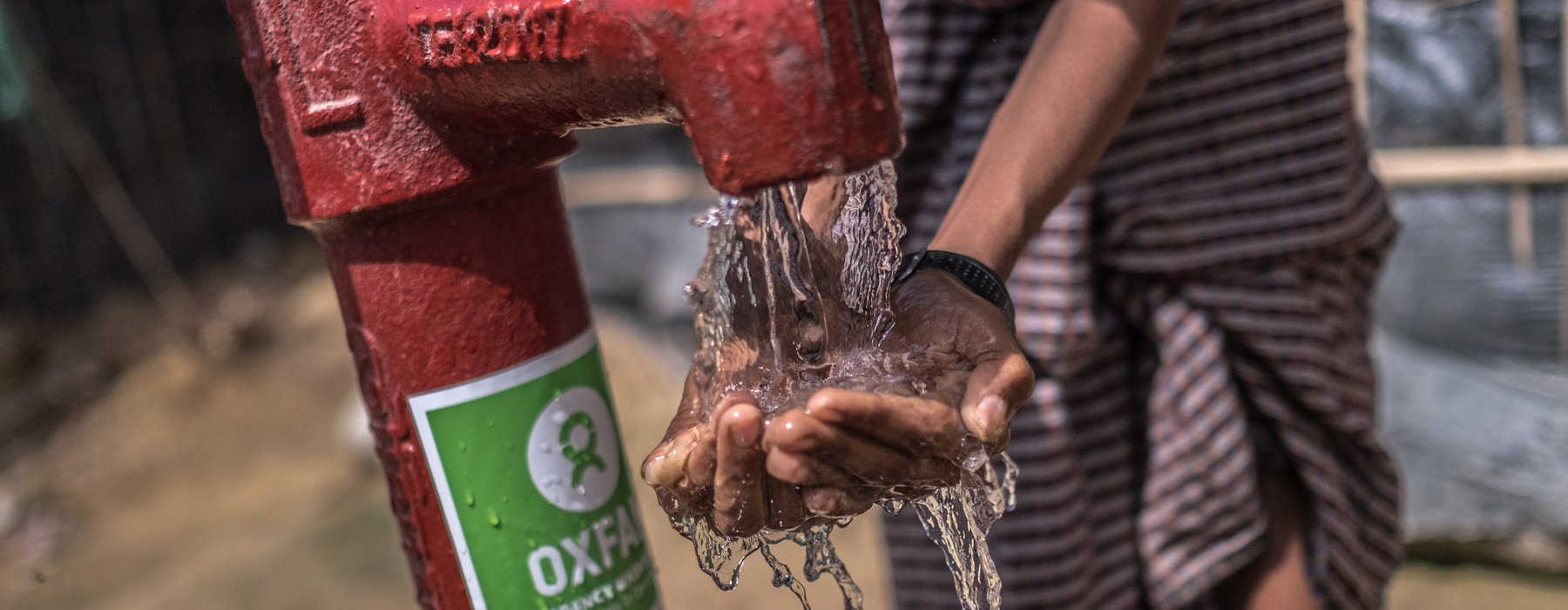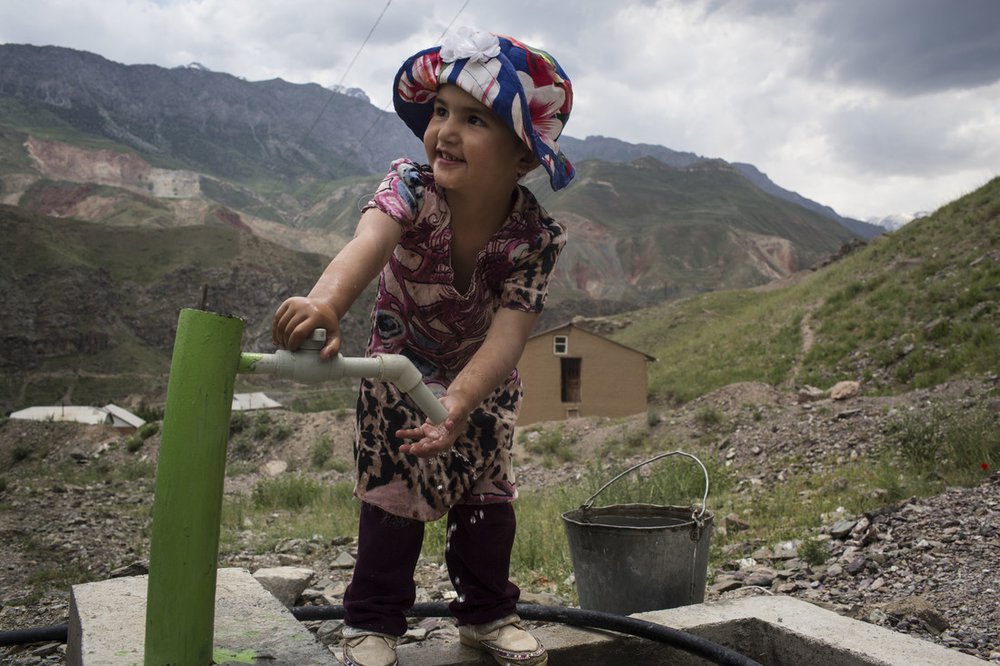Tommy Trenchard / Oxfam


Water: Home Learning Activities
Learn and think about the importance of water
- It's easy to forget what a miracle water is. Whether for drinking, washing or growing our food, we all need water.
- But worldwide, 785 million people don’t have clean water close to home, that’s around one in ten people.
- Here are some quick activity ideas to help you learn and think about the importance of water.
- Keep a water diary. Build a water filter. Go on a water hunt. Measure how much water you use for different purposes. Act out the journey of a water drop!
Eleanor Farmer/Oxfam

A girl fills a bucket with clean water from a tap next to her home in Tajikistan. Oxfam worked with partners to install a piped water system in the village.
1. Write down all the different ways you use water
These might be things like drinking, having a shower or bath, cleaning your teeth, washing clothes, cooking, doing the dishes, going swimming.
Now sort your results in order of how important they are for survival.
For example: we use water to drink – we need to do this in order to stay alive. We use water to swim in – we do this for fun.
2. Go on a water hunt in your kitchen
Have a look at the labels on different food items and drinks. Which ones contain water in the ingredients?
Look through recipes. Which ones use water?
3. Keep a water diary
Keep a record of the different ways you use water each day.
4. Try looking after two plants
Water only one and observe the difference in their growth and health.
5. Find out how much water is needed
Use the internet to research how much water is needed to produce different types of food and other items such as the clothes we wear.
6. Make a water collage
Cut out or print off pictures of water being used in different ways.
Salahuddin Ahmed
7. Build your own water filter
Have a go at making your own water filter. Try using sand, small stones, grass and other natural materials to filter muddy water to get it as clean as possible. Try the Ditch The Dirt Challenge, from the charity, Practical Action to investigate ways of making dirty water cleaner and safe to drink.
8. How much water do you need for different activities?
How much do you use for one drink? To clean your teeth? To wash your hands? To have a shower or bath? Measure it!
9. What activities would you stop doing if you had to carry the water to do them?
Many people in other parts of the world don’t have a water tap at home and may have to walk long distances to collect water. This is often the job of women and girls, some of whom spend a few hours each day just fetching water. Try carrying a bucket full of water across your garden. What activities would you stop doing if you had to carry the water for them? Write them down.
Elizabeth White/Oxfam
10. Build a tippy tap!
A tippy tap uses a simple container, like an empty plastic bottle, to hold and pour water. Follow these instructions from the charity WaterAid to make your own.
11. Pretend you are a raindrop
Act out a journey from cloud to cup. Or write a story or use pictures to describe its journey.
12. Find where the water comes into your home
Look under the kitchen sink or in the bathroom to find some pipes that the water travels through. Have a go at using some tubes or piping to pour water from one container to another.
Collin Nduna/Oxfam
13. Collect rainwater in a bucket
Try and work out a way of collecting more rainwater. If it is not raining you could use a watering can to simulate rain. Look at pictures of other rain collecting devices, for example, water butts that attach to drain pipes.
14. Try to cut down on how much water you use
Think about how you and your family could try to cut down on how much water you use. Simple things like setting a time limit on showers or turning off a running tap when cleaning your teeth can save lots of water.
Water companies often offer lots of free advice and gadgets to help cut down on water use.
Set yourselves a challenge to reduce your water use and bills!